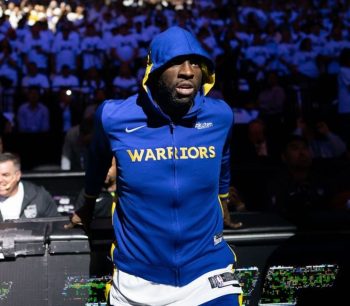NBA
NBA Daily: Gary Trent Jr. Pushing Portland to Defy Expectations

Once again, the Portland Trail Blazers are overcoming injuries and exceeding expectations. They’re currently fifth in the Western Conference and within three games of the second-seeded Los Angeles Clippers.
It’s abundantly clear that Damian Lillard is most responsible for Portland’s success. However, one player can only take a team so far and, as great as Lillard has played the role of Batman, Gary Trent Jr. has taken a huge step up and emerged as his Robin in the absence of CJ McCollum.
In fact, in their Feb. 4 tilt against the Philadelphia 76ers, a game in which the Trail Blazers were without Lillard and McCollum, Trent scored a team-high 24 points and led Portland to a 121-105 victory at the Wells Fargo Center, just the 76ers second loss at home on the season.
Lillard, McCollum and Trent have only played 11 games together this season — and, in one of those, Trent logged fewer than six minutes. When the three of them suit up, Portland is 7-4 and has scored 136.6 points per 100 possessions, the highest offensive rating of any trio on the Trail Blazers that has played at least 10 games together, per NBA.com. That group will have to provide more defensive resistance for Portland to succeed in the postseason — in their time together, the trio is surrendering 117 points per 100 possessions — but their offensive potency would give them a chance against just about any opponent.
McCollum, who has missed time due to a fracture in his left foot, hasn’t played since Jan. 16. Since then, Portland, who recently rattled off six consecutive wins, are 10-6. In February, the team is 8-3 while Trent, who is averaging 18 points per game since McCollum’s injury, has proven an essential part of that success.
For the season, the former Duke Blue Devil is averaging 15.4 points per game while splashing 44.2 percent of his 7.4 three-point attempts per game. Trent is also 13th in the NBA in three-pointers made per game, contributing 3.3 per contest. But what’s pushed his game to a new level this season?
Well, Trent has improved his greatest strength: the catch-and-shoot three. Last season, Trent shot 41.5 percent on 2.9 catch-and-shoot opportunities per game. This season, not only has he improved that percentage to 44.6 percent, but he’s done so on four such attempts per game.
Trent has also become more dangerous off the dribble: while he averaged just 2.9 pull-ups per game last season, Trent has appeared far more comfortable creating off the bounce this season, hoisting 6.3 pull-ups per contest this season and knocking them down at a 39.2 percent clip. 3.3 of those attempts have come from beyond the arc and are going in at a rate of 43.3 percent. The fact that Trent has more than doubled those attempts per game is an accurate reflection of his evolution into more than a long-range threat.
The same goes for his newfound penchant for coming off a pindown and snaking his way from the slot — the space between the three-point line and the top of the key — to the opposite elbow for a mid-range jumper.
For all his improvement, Trent still has a lot of room for growth. To put it mildly, his numbers at the other end of the floor are underwhelming. Trent ranks towards the bottom of the Trail Blazers’ roster in numerous defensive metrics, per basketball-reference: his 1.1 steal percentage is 10th on a 14-player roster; his .1 defensive win shares ninth; his -2.3 box plus-minus 11th; his 120 points per 100 possessions 14th.
His effort is evident — Trent’s 2.1 deflections per game, the third-most on the Trail Blazers, is a testament to that — but, as someone who’s typically alongside at least one of (if not both of) Lillard and McCollum, Trent is often charged with more difficult defensive assignments, arguably tougher tasks than he’s best-suited to take on. But, sometimes, challenges of that nature are a part of life in the NBA.
The Trail Blazers rank sixth in points per 100 possessions, but their defensive rating is the third-worst in the league. That imbalance has existed throughout the Lillard-McCollum era in Rip City, and it’s at the core of why Portland hasn’t made it past the first round in three of the last four postseasons. It also makes the Blazers’ run to the Conference Finals two years ago that much more impressive.
Trent Jr.’s growth offensively is a crucial part of why Portland once again is overcoming injuries and defying regular-season expectations. However, if he can make more of an impact defensively, perhaps by raising his steal rate, it could be one of the main reasons the Trail Blazers enjoy a lengthier stay in the playoffs than has typically been the case in recent years.













